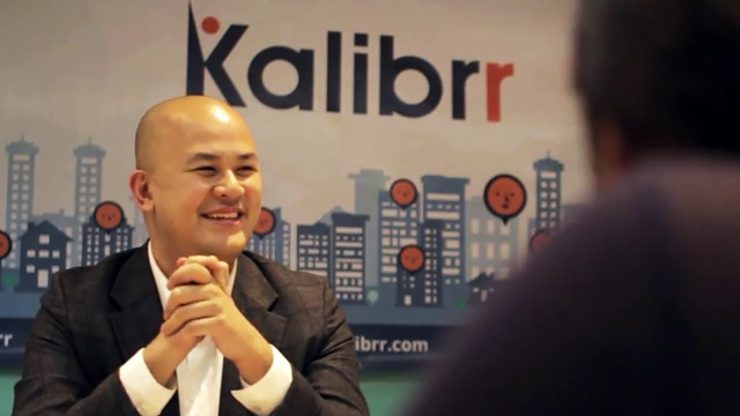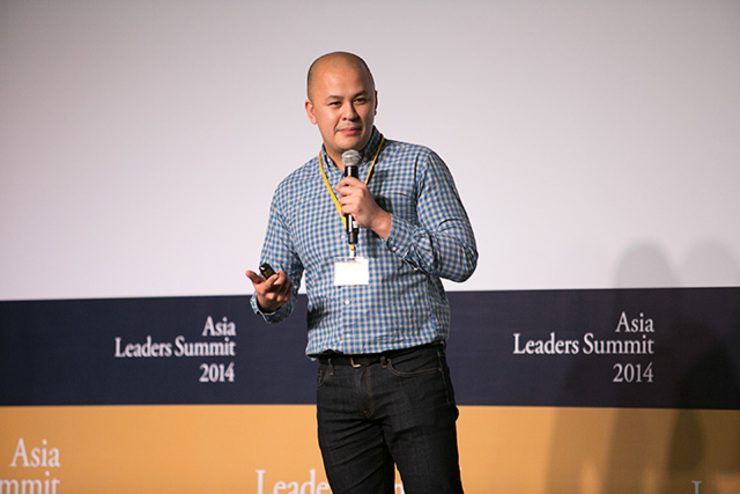SUMMARY
This is AI generated summarization, which may have errors. For context, always refer to the full article.


Back in high school, Paul would always straddle two worlds … He was quite friendly with most of the students, but he was most comfortable taking on a virtual persona, meeting people on AOL’s chat channels. Some sessions would last for 8 straight hours, as he mastered the craft of making friends from all over the world through a text based chat window. AOL’s internet chat rooms served as the training ground for Paul’s polished salesmanship today. It also opened his mind to the potential of the internet to change everything.
College in Berkeley saw Paul put in 30 hour work weeks to pay for his tuition. “I didn’t want to take on any government loans nor have my parents pay for my school expenses.” This desire to become self sufficient taught Paul the value of hard work and discipline. Having zero debt on graduation day also gave Paul the freedom to choose the career of his choice, unencumbered by any financial obligations to anyone.
When the opportunity to work overseas presented itself, Paul quickly seized the chance to take off and see the world. Never mind that his travels would bring him to Bangalore India to set up the customer service support team of his employer, Mercantila. “I learned everything about running a team and setting up a company there. From running operations, to product development, to hiring and training a team, I had to figure things out for myself at age 22,” says Paul.
Having to manage Mercantila’s international operations in a not so expat friendly place, in a culture that is so different from what he was used to, without the support system of family and friends nearby, developed the resilience he would need to thrive in running his own startup later on.
Soon enough though, Paul would find himself working in the most admired technology company in the world … Google. Joining the Adwords team of now Facebook COO, Sheryl Sandberg, opened the eyes of Paul to a different side of technology. “Google is a company with massive resources. Unlimited food, pop-up concerts, crazy bonuses, very smart people, you knew that this was a company that had the resources to change the world.”
The love affair with Google would swiftly end though, as 6 months later, the opportunity to set up his own business in his home country was too difficult to resist. Paul found himself setting up a BPO in the Philippines.
“I didn’t really know anyone. I would fly in, stay for 2 months at a time, and build out the team using sites like Craigslist to find candidates to hire. I didn’t even know that sites like Jobstreet and Sulit existed,” shares Paul.
Slowly but surely, Paul’s BPO, Open Access, grew its client base in the US, and its employee base in the Philippines. The time came when they stopped boot strapping their operations and decided to invest in a full office with all of the expensive call center infrastructure. 2 months after spending on this though, they lost their biggest client who comprised 40 percent of their business.
“We were screwed!” Says Paul.
They hustled to find people who would lend them money because they didn’t have cash to make payroll. They would borrow from friends, family, and sometimes even enemies, promising crazy interest rates in return, just to pony up the necessary cash.
Paul shares, “Every single day for 2 years, we had a don’t die mentality. I lost everything in those 2 years. My girlfriend, my friends, my close relationships … I chose business over everything else.”
It was in running Open Access that Paul discovered the skills gap in the BPO industry. He realized that the sourcing and the hiring process of call center agents was flawed, and he sought to solve this problem. A dinner with childhood friend, Dexter Ligot-Gordon, sealed the deal. With Danny Castonguay joining the group as CTO emeritus, industry and domain expertise came together, and Kalibrr was born.

With the best team of engineers in the country behind Kalibrr’s brain trust, Kalibrr plans to redefine how companies hire and nurture talent using predictive analytics and machine learning.
“We are the talent cloud,” says Paul. “With Kalibrr, companies can continuously improve workforce quality, employee productivity, and company profitability.”
No one has done this before in the scale that Paul envisions it. His intense determination to see Kalibrr through has led him to convince the who’s who of local and international investors to buy into his dream.
Like any entrepreneurial journey, Kalibrr has had its own fair share of challenges. In May last year, Paul had to fire 10 members of his team as Kalibrr shifted business models. Paul’s voice breaks as he shares, “It was the most difficult decision I have ever had to make in my life. These were people who started Kalibrr with me. They were my friends.”
Difficult decisions such as this have made Paul a more mature and seasoned leader. “I’m not here to make friends. I’m here to succeed. I would fire myself if I realize that I am no longer the best person to run Kalibrr.”
Paul wants to measure Kalibrr’s ultimate success not just by profit but by impact. Impact not just to the way companies hire and manage personnel, impact not just to the way skills are taught to people by schools and training institutions, but also impact to the lives of the people who work for Kalibrr. People who matter dearly to Paul.
“I want the Philippine tech entrepreneurs of 2020 to be Kalibrr employees. I want them to learn everything I have learned. They will be the startups everyone will invest in.” Paul says with powerful conviction, “The future success of my employees is as important for me as the success of Kalibrr. I want them to be this country’s future.” – Rappler.com
Add a comment
How does this make you feel?
There are no comments yet. Add your comment to start the conversation.